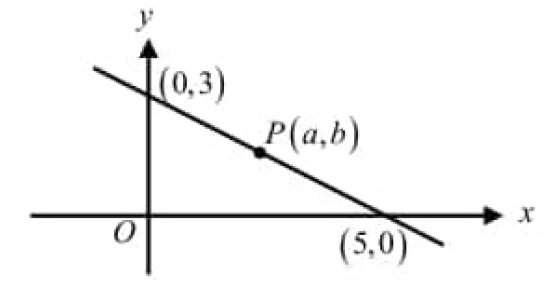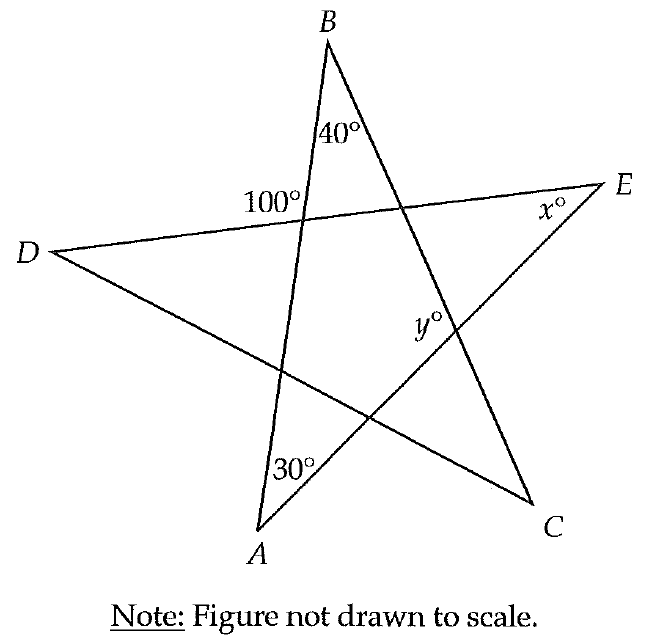HOW TO FACTOR POLYNOMIALS WITH 4 TERMS WITHOUT GROUPING
Let P(x) be a polynomial with four terms.
To factor P(x) without grouping, substitute
x = -1, 1, -2, 2, -3, 3.......
P(-1) = 0 ----> (x + 1) is a factor of P(x)
P(1) = 0 ----> (x - 1) is a factor of P(x)
P(-2) = 0 ----> (x + 2) is a factor of P(x)
P(2) = 0 ----> (x - 2) is a factor of P(x)
If P(-1) ≠ 0, then (x + 1) is not a factor of P(x).
Then, try x = 1, x = -2, x = 2 and so on.
Once one of the linear factors of P(x) is found, the other factors can bound easily (the rest of the process has been explained in the following examples).
Factor the following polynomials without grouping :
Example 1 :
x3 - 2x2 - x + 2
Solution :
Let p(x) = x3 - 2x2 - x + 2.
Substitute x = -1.
p(-1) = (-1)3 - 2(-1)2 - (-1) + 2
= -1 - 2(1) + 1 + 2
= -1 - 2 + 1 + 2
= 0
Since P(-1) = 0, (x + 1) is a factor of P(x).
Since P(x) is a cubic polynomial, the other factor can be assumed as (x2 + ax + b).
Then,
(x + 1)((x2 + ax + b) = x3 - 2x2 - x + 2
Comparing the coefficients of x and constants,
|
b + a = -1 ----(1) |
b = 2 |
Substitute b = 2 in (1).
2 + a = -1
a = -3
x2 + ax + b = x2 - 3x + 2
Factors of (x2 - 3x + 2) are (x - 1) and (x - 2).
Therefore,
x3 - 2x2 - x + 2 = (x + 1)(x - 1)(x - 2)
Example 2 :
x3 + 4x2 + x - 6
Solution :
Let p(x) = x3 + 4x2 + x - 6.
Substitute x = -1.
p(1) = (-1)3 + 4(-1)2 + (-1) - 6
= -1 + 4(1) - 1 - 6
= -1 + 4 - 1 - 6
= -4 ≠ 0
Substitute x = 1.
p(1) = 13 + 4(1)2 + 1 - 6
= 1 + 4 + 1 - 6
= 0
Since P(1) = 0, (x - 1) is a factor of P(x).
Since P(x) is a cubic polynomial, the other factor can be assumed as (x2 + ax + b).
Then,
(x - 1)((x2 + ax + b) = x3 + 4x2 + x - 6
Comparing the coefficients of x and constants,
|
b - a = 1 ----(1) |
-b = -6 b = 6 |
Substitute b = 6 in (1).
6 - a = 1
-a = -5
a = 5
x2 + ax + b = x2 + 5x + 6
Factors of (x2 + 5x + 6) are (x + 2) and (x + 3).
Therefore,
x3 + 4x2 + x - 6 = (x - 1)(x + 2)(x + 3)
Example 3 :
x3 + 3x2 - 4x - 12
Solution :
Let p(x) = x3 + 3x2 - 4x - 12.
Substitute x = -1.
p(-1) = (-1)3 + 3(-1)2 - 4(-1) - 12
= -1 + 3(1) + 4 - 12
= -1 + 3 + 4 - 12
= -6 ≠ 0
Since P(-1) ≠ 0, (x + 1) is not a factor of P(x).
Substitute x = 1.
p(1) = 13 + 3(1)2 - 4(1) - 12
= 1 + 3 - 4 - 12
= -12 ≠ 0
Substitute x = -2.
p(-2) = (-2)3 + 3(-2)2 - 4(-2) - 12
= -8 + 3(4) + 8 - 12
= -8 + 12 + 8 - 12
= 0
Since P(-2) = 0, (x + 2) is a factor of P(x).
Since P(x) is a cubic polynomial, the other factor can be assumed as (x2 + ax + b).
Then,
(x + 2)((x2 + ax + b) = x3 + 3x2 - 4x - 12
Comparing the coefficients of x and constants,
b + 2a = -4 ----(1)2b = -12b = -6
Substitute b = -6 in (1).
-6 + 2a = -4
2a = 2
a = 1
x2 + ax + b = x2 + x - 6
Factors of (x2 + x - 6) are (x - 2) and (x + 3).
Therefore,
x3 + 3x2 - 4x - 12 = (x + 2)(x - 2)(x + 3)
Kindly mail your feedback to v4formath@gmail.com
We always appreciate your feedback.
©All rights reserved. onlinemath4all.com
Recent Articles
-
Digital SAT Math Problems and Solutions (Part - 134)
Apr 02, 25 12:40 AM
Digital SAT Math Problems and Solutions (Part - 134) -
SAT Math Resources (Videos, Concepts, Worksheets and More)
Apr 02, 25 12:35 AM
SAT Math Resources (Videos, Concepts, Worksheets and More) -
Digital SAT Math Problems and Solutions (Part 135)
Apr 02, 25 12:32 AM
Digital SAT Math Problems and Solutions (Part 135)

